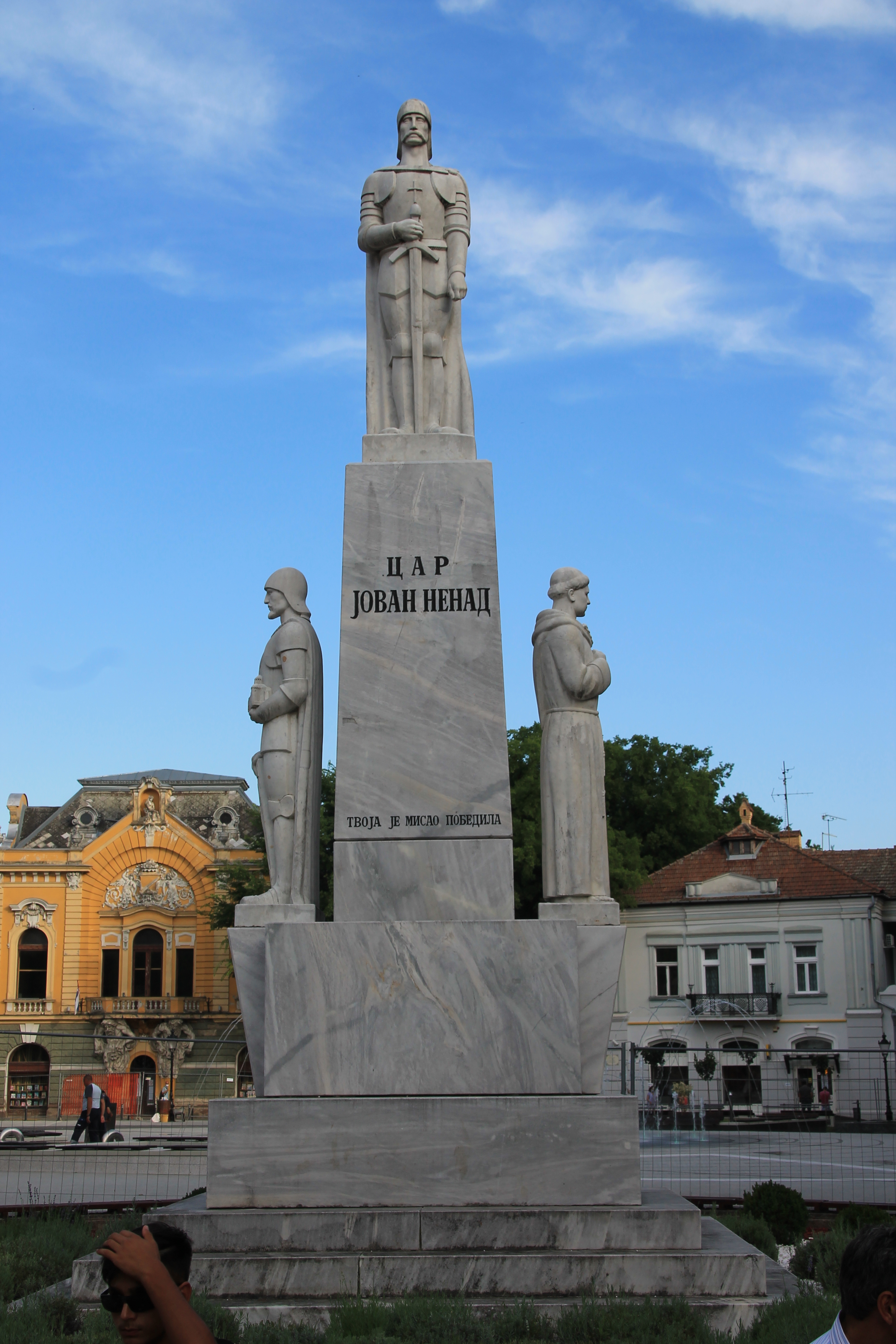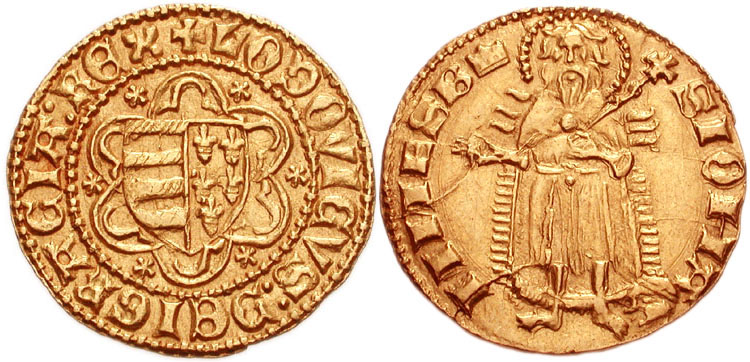|
Marinko Magda
Marinko Magda ( hu, Magda Marinkó) is a Serbian hitman who has murdered 11 people in Serbia and Hungary. Murders in Serbia In 1994 he killed five people in the town of Subotica: Milan Petrić, Stana Petrić, Dane Petrić, Josip Agatić and Verica Agatić. Murders in Hungary On January 13, 1994, in Szeged, Hungary, the 42-year-old Bálint Z. Nagy (a local confectioner), his 42-year-old wife, and their 16- and 10-year-old children were shot dead in their apartment. On January 28, 1994, the Hungarian police arrested Marinko Magda as the main suspect of murder of the Z. Nagy family. An investigation revealed that the same weapon which was used to kill the Nagy family was used to kill a Hungarian couple, Horváth Antal and his wife, as well as Dragutin Kujundžić (a Croatian), on December 20, 1993, in Kecskemét Kecskemét ( , sk, Kečkemét) is a city with county rights central part Hungary. It is the eighth-largest city in the country, and the county seat of Bács- ... [...More Info...] [...Related Items...] OR: [Wikipedia] [Google] [Baidu] |
Hungarians
Hungarians, also known as Magyars ( ; hu, magyarok ), are a nation and ethnic group native to Hungary () and historical Hungarian lands who share a common culture, history, ancestry, and language. The Hungarian language belongs to the Uralic language family. There are an estimated 15 million ethnic Hungarians and their descendants worldwide, of whom 9.6 million live in today's Hungary. About 2–3 million Hungarians live in areas that were part of the Kingdom of Hungary before the Treaty of Trianon in 1920 and are now parts of Hungary's seven neighbouring countries, Slovakia, Ukraine, Romania, Serbia, Croatia, Slovenia, and Austria. Significant groups of people with Hungarian ancestry live in various other parts of the world, most of them in the United States, Canada, Germany, France, the United Kingdom, Chile, Brazil, Australia, and Argentina. Hungarians can be divided into several subgroups according to local linguistic and cultural characteristics; subgroups with distinc ... [...More Info...] [...Related Items...] OR: [Wikipedia] [Google] [Baidu] |
Contract Killing
Contract killing is a form of murder or assassination in which one party hires another party to kill a targeted person or persons. It involves an illegal agreement which includes some form of payment, monetary or otherwise. Either party may be a person, group, or organization. Contract killing has been associated with organized crime, government conspiracies, dictatorships, and vendettas. For example, in the United States, the Jewish-American organized crime gang Murder, Inc. committed hundreds of murders on behalf of the National Crime Syndicate during the 1930s and '40s. Contract killing provides the hiring party with the advantage of not having to carry out the actual killing, making it more difficult for law enforcement to connect the hirer with the murder. The likelihood that authorities will establish that party's guilt for the committed crime, especially due to lack of forensic evidence linked to the contracting party, makes the case more difficult to attribute to the hi ... [...More Info...] [...Related Items...] OR: [Wikipedia] [Google] [Baidu] |
Serbia
Serbia (, ; Serbian language, Serbian: , , ), officially the Republic of Serbia (Serbian language, Serbian: , , ), is a landlocked country in Southeast Europe, Southeastern and Central Europe, situated at the crossroads of the Pannonian Basin and the Balkans. It shares land borders with Hungary to the north, Romania to the northeast, Bulgaria to the southeast, North Macedonia to the south, Croatia and Bosnia and Herzegovina to the west, and Montenegro to the southwest, and claims a border with Albania through the Political status of Kosovo, disputed territory of Kosovo. Serbia without Kosovo has about 6.7 million inhabitants, about 8.4 million if Kosvo is included. Its capital Belgrade is also the List of cities in Serbia, largest city. Continuously inhabited since the Paleolithic Age, the territory of modern-day Serbia faced Slavs#Migrations, Slavic migrations in the 6th century, establishing several regional Principality of Serbia (early medieval), states in the early Mid ... [...More Info...] [...Related Items...] OR: [Wikipedia] [Google] [Baidu] |
Hungary
Hungary ( hu, Magyarország ) is a landlocked country in Central Europe. Spanning of the Carpathian Basin, it is bordered by Slovakia to the north, Ukraine to the northeast, Romania to the east and southeast, Serbia to the south, Croatia and Slovenia to the southwest, and Austria to the west. Hungary has a population of nearly 9 million, mostly ethnic Hungarians and a significant Romani minority. Hungarian, the official language, is the world's most widely spoken Uralic language and among the few non-Indo-European languages widely spoken in Europe. Budapest is the country's capital and largest city; other major urban areas include Debrecen, Szeged, Miskolc, Pécs, and Győr. The territory of present-day Hungary has for centuries been a crossroads for various peoples, including Celts, Romans, Germanic tribes, Huns, West Slavs and the Avars. The foundation of the Hungarian state was established in the late 9th century AD with the conquest of the Carpathian Basin by Hungar ... [...More Info...] [...Related Items...] OR: [Wikipedia] [Google] [Baidu] |
Subotica
Subotica ( sr-cyrl, Суботица, ; hu, Szabadka) is a List of cities in Serbia, city and the administrative center of the North Bačka District in the autonomous province of Vojvodina, Serbia. Formerly the largest city of Vojvodina region, contemporary Subotica is now the second largest city in the province, following the city of Novi Sad. According to the 2011 census, the city itself has a population of 97,910, while the urban area of Subotica (with adjacent urban settlement of Palić included) has 105,681 inhabitants, and the population of metro area (the administrative area of the city) stands at 141,554 people. Name The name of the city has changed frequently over time.History of Subotica Retrieved 8 September 2022. The earliest known written name of the city was ''Zabotka'' or ''Zabatka'', [...More Info...] [...Related Items...] OR: [Wikipedia] [Google] [Baidu] |
Szeged
Szeged ( , ; see also #Etymology, other alternative names) is List of cities and towns of Hungary#Largest cities in Hungary, the third largest city of Hungary, the largest city and regional centre of the Southern Great Plain and the county seat of Csongrád-Csanád County, Csongrád-Csanád county. The University of Szeged is one of the most distinguished universities in Hungary. The Szeged Open Air (Theatre) Festival (first held in 1931) is one of the main attractions, held every summer and celebrated as the Day of the City on 21 May. Etymology The name ''Szeged'' might come from an old Hungarian language, Hungarian word for 'corner' (), pointing to the turn of the river Tisza that flows through the city. Others say it derives from the Hungarian word which means 'island'. Others still contend that means 'dark blond' () – a reference to the color of the water where the rivers Tisza and Mureș (river), Maros merge. The city has its own name in a number of foreign language ... [...More Info...] [...Related Items...] OR: [Wikipedia] [Google] [Baidu] |
Police
The police are a constituted body of persons empowered by a state, with the aim to enforce the law, to ensure the safety, health and possessions of citizens, and to prevent crime and civil disorder. Their lawful powers include arrest and the use of force legitimized by the state via the monopoly on violence. The term is most commonly associated with the police forces of a sovereign state that are authorized to exercise the police power of that state within a defined legal or territorial area of responsibility. Police forces are often defined as being separate from the military and other organizations involved in the defense of the state against foreign aggressors; however, gendarmerie are military units charged with civil policing. Police forces are usually public sector services, funded through taxes. Law enforcement is only part of policing activity. Policing has included an array of activities in different situations, but the predominant ones are concerned with the pre ... [...More Info...] [...Related Items...] OR: [Wikipedia] [Google] [Baidu] |
Croats
The Croats (; hr, Hrvati ) are a South Slavic ethnic group who share a common Croatian ancestry, culture, history and language. They are also a recognized minority in a number of neighboring countries, namely Austria, the Czech Republic, Germany, Hungary, Italy, Montenegro, Romania, Serbia, Slovakia and Slovenia. Due to political, social and economic reasons, many Croats migrated to North and South America as well as New Zealand and later Australia, establishing a diaspora in the aftermath of World War II, with grassroots assistance from earlier communities and the Roman Catholic Church. In Croatia (the nation state), 3.9 million people identify themselves as Croats, and constitute about 90.4% of the population. Another 553,000 live in Bosnia and Herzegovina, where they are one of the three constituent ethnic groups, predominantly living in Western Herzegovina, Central Bosnia and Bosnian Posavina. The minority in Serbia number about 70,000, mostly in Vojvodina. The ... [...More Info...] [...Related Items...] OR: [Wikipedia] [Google] [Baidu] |
Kecskemét
Kecskemét ( , sk, Kečkemét) is a city with county rights central part Hungary. It is the eighth-largest city in the country, and the county seat of Bács-Kiskun. Kecskemét lies halfway between the capital Budapest and the country's third-largest city, Szeged, from both of them and almost equal distance from the two big rivers of the country, the Danube and the Tisza. It is the northern of two centres of the Hungarian Southern Great Plain (Hungarian: Dél-Alföld) region (comprising the three counties Bács-Kiskun, Békés and Csongrád); the southern centre is Szeged, the seat of Csongrád county. Etymology The name of the city stems from the Hungarian word ''kecske'' meaning "goat" and ''-mét'' meaning "pass". Geography Kecskemét was established at the meeting point of a large sandy region and a sandy yellow soil; its elevation is above sea level. The territory west of the city is covered by wind-blown sand, characterised by the almost parallel northern-southern ... [...More Info...] [...Related Items...] OR: [Wikipedia] [Google] [Baidu] |
Life Imprisonment
Life imprisonment is any sentence of imprisonment for a crime under which convicted people are to remain in prison for the rest of their natural lives or indefinitely until pardoned, paroled, or otherwise commuted to a fixed term. Crimes for which, in some countries, a person could receive this sentence include murder, torture, terrorism, child abuse resulting in death, rape, espionage, treason, drug trafficking, drug possession, human trafficking, severe fraud and financial crimes, aggravated criminal damage, arson, kidnapping, burglary, and robbery, piracy, aircraft hijacking, and genocide, crimes against humanity, war crimes or any three felonies in case of three-strikes law. Life imprisonment (as a maximum term) can also be imposed, in certain countries, for traffic offences causing death. Life imprisonment is not used in all countries; Portugal was the first country to abolish life imprisonment, in 1884. Where life imprisonment is a possible sentence, there may als ... [...More Info...] [...Related Items...] OR: [Wikipedia] [Google] [Baidu] |
Hungarian Forint
The forint (sign Ft; code HUF) is the currency of Hungary. It was formerly divided into 100 fillér, but fillér coins are no longer in circulation. The introduction of the forint on 1 August 1946 was a crucial step in the post-World War II stabilisation of the Hungarian economy, and the currency remained relatively stable until the 1980s. Transition to a market economy in the early 1990s adversely affected the value of the forint; inflation peaked at 35% in 1991. Between 2001 and 2022, inflation was in single digits, and the forint has been declared fully convertible. In May 2022, inflation reached 10.7% amid the war in Ukraine and economic uncertainty. As a member of the European Union, the long-term aim of the Hungarian government may be to replace the forint with the euro, although under the current government there is no target date for adopting the euro. History The forint's name comes from the city of Florence, where gold coins called '' fiorino d'oro'' were minted fro ... [...More Info...] [...Related Items...] OR: [Wikipedia] [Google] [Baidu] |
Family Murders
Family (from la, familia) is a group of people related either by consanguinity (by recognized birth) or affinity (by marriage or other relationship). The purpose of the family is to maintain the well-being of its members and of society. Ideally, families offer predictability, structure, and safety as members mature and learn to participate in the community. Historically, most human societies use family as the primary locus of attachment, nurturance, and socialization. Anthropologists classify most family organizations as matrifocal (a mother and her children), patrifocal (a father and his children), conjugal (a wife, her husband, and children, also called the nuclear family), avuncular (a man, his sister, and her children), or extended (in addition to parents and children, may include grandparents, aunts, uncles, or cousins). The field of genealogy aims to trace family lineages through history. The family is also an important economic unit studied in family economics. The w ... [...More Info...] [...Related Items...] OR: [Wikipedia] [Google] [Baidu] |




.png)


